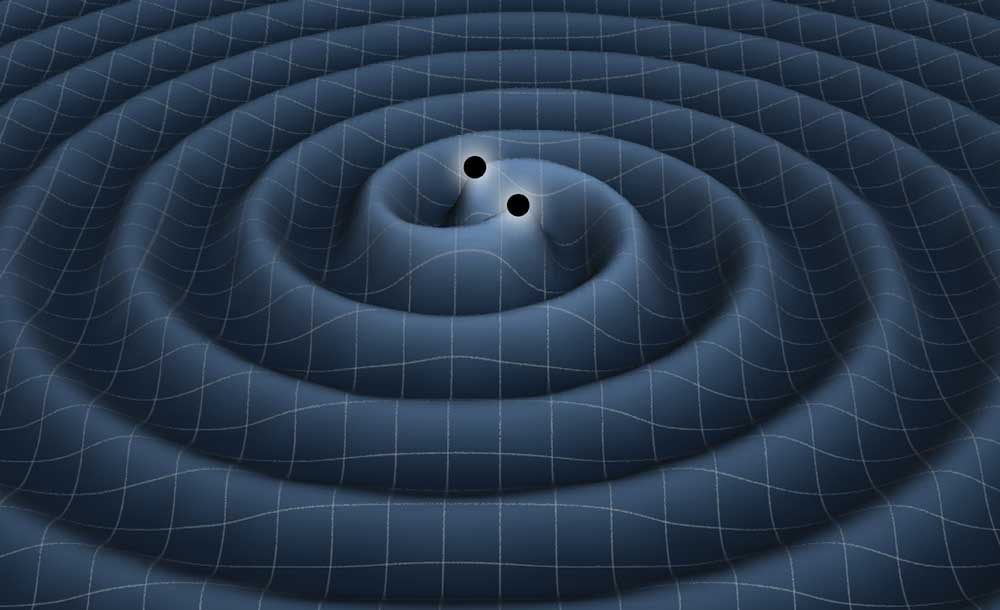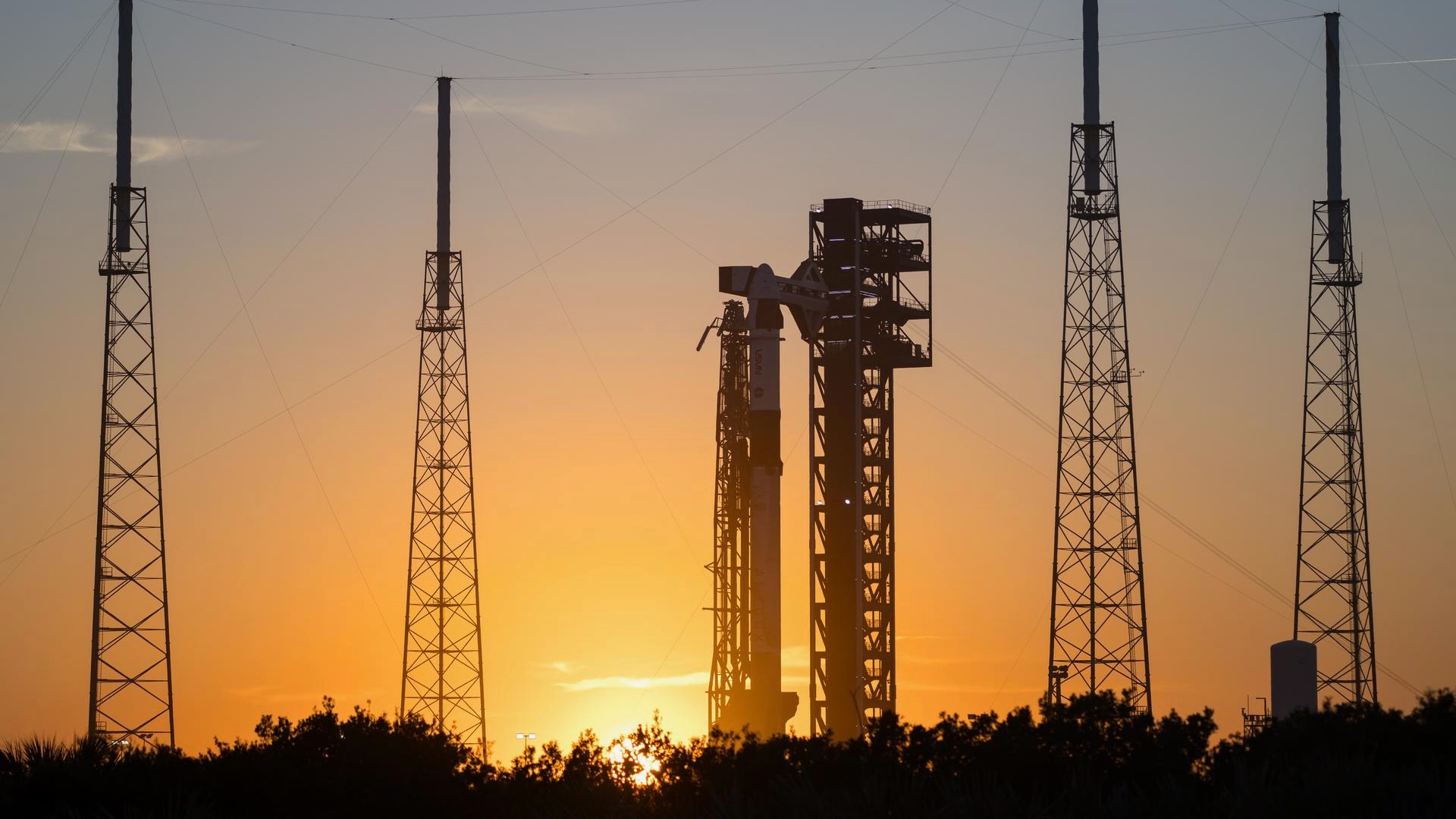
LIGO Generations (Trailer)

Breaking space news, the latest updates on rocket launches, skywatching events and more!
You are now subscribed
Your newsletter sign-up was successful
Want to add more newsletters?

Delivered daily
Daily Newsletter
Breaking space news, the latest updates on rocket launches, skywatching events and more!

Once a month
Watch This Space
Sign up to our monthly entertainment newsletter to keep up with all our coverage of the latest sci-fi and space movies, tv shows, games and books.

Once a week
Night Sky This Week
Discover this week's must-see night sky events, moon phases, and stunning astrophotos. Sign up for our skywatching newsletter and explore the universe with us!

Twice a month
Strange New Words
Space.com's Sci-Fi Reader's Club. Read a sci-fi short story every month and join a virtual community of fellow science fiction fans!
Kai Staats is an entrepreneur, writer, filmmaker and now a Masters student at the African Institute for Mathematical Sciences, Cosmology Research Group, Cape Town, South Africa. In his former life in corporate America, Kai was founder and CEO of a Linux OS and HPC systems company where his team helped researchers and scientists improve performance in supercomputing systems. He contributed this Op-Ed to Space.com's Expert Voices: Op-Ed & Insights
In my work as a documentary filmmaker, I am often moved by the stories I capture. One on one, I have been moved to laughter, tears, even anger as my camera records what is shared.
Last year, I assisted my brother with a film about a shelter for battered women. In those recording sessions he and I consumed as many tissues as did the women who spoke of pain, self-realization and ultimate transformation.
For me, the world of research and scientific discovery is no less emotional. It is, at its core, not altogether different in that we as a species are forever looking back to our past in reflection of who we were, where we are now, and what we would like to become. The fields of anthropology, sociology, engineering and physics all have the capacity to work toward a better future.
Humanity's ultimate transformation through the eyes of science has been presented as science fiction for more than a hundred years, an image of what we strive to become as we gain a greater understanding of ourselves and the universe in which we live.
This journey has never been, cannot be, the journey of one individual, of a solo genius working in the isolation of a secret lab. Every incremental step, every cognitive leap, every breakthrough falls along a continuum of multiple generations of individuals who push the boundaries of contemporary knowledge and modern processes to discover what lies just beyond the reach of what is possible.
The work at LIGO is no different in that hundreds of individuals have worked to achieve what Einstein himself thought impossible. But LIGO, the Laser Interferometer Gravitational-Wave Observatory , is unique among big science projects in that it has been in motion for nearly forty years, the work of four generations of scientists, engineers, researchers and project managers.
Breaking space news, the latest updates on rocket launches, skywatching events and more!
In this, my second film about LIGO, funded by the National Science Foundation through the University of Mississippi, I had the privilege of sitting with each of those generations to learn how science knowledge, processes and wisdom are disseminated.
The dedication to something far greater than individual recognition carries from interview to interview. There is a passion for understanding that moves this multi-decade effort into a profound, new way of "hearing" the universe in which we live.
Producing LIGO Generations
Capturing any film is challenging, a story in and of itself, but there was a single interview that encapsulated the entire effort for LIGO Generations. There I was, in the LIGO Science Education Center, sitting in front of Rainer Weiss, co-founder of LIGO, generation one. I was nervous, for sure, knowing I had one shot at getting this right.
Sitting at Weiss's sides were three additional generations of researchers: Joe Giaime, head of LIGO's Livingston Observatory; Gabriela Gonzalez, spokesperson for the LIGO Scientific Collaboration; and students — Ryan Derosa, a Louisiana State University (LSU) graduate student working under Gaime; Anamaria Effler, an LSU graduate student working under Gonzalez; and Nutsinee Kijbunchoo, an LSU undergraduate student.
Weiss had flown in from Boston the day before and would leave only a few busy days later. Every hour was claimed with engineering and logistics meetings, morning till night.
Given the intensity of my days filming, I had not found chance that morning to prepare a set of questions. I dove in, totally unprepared.
Following a brief introduction to the goal of this multi-generational interview, I attempted to set the stage by asking Weiss to comment on how it felt to see the incredible infrastructure and more than nine hundred individuals who worked for an organization that arose from his idea.
He sat back a bit, took a deep breath, and said, "Well, I think your question is a bunch of crap ... but I am going to give you an answer anyway, even if it is not the one you were hoping for."
Everyone laughed and the interview went perfectly. We discussed how information, experience and wisdom are moved from one generation to the next. I introduced the concept of "tribal knowledge" as it is often used in the corporate world. At first, those present felt it did not resonate at LIGO, but further conversation and a "What if?" scenario found means by which knowledge is transmitted outside of digital documents and archives. It was as much a conversation as an interview, which in my experience equates to success. [WATCH NOW: 'LIGO, A Passion for Understanding' Documentary Premiere ]
A tale of two observatories
As with my shoot for "LIGO: A Passion for Understanding" at the Hanford Observatory in Washington state in December of last year, my two weeks on the LSU campus were filled, morning 'til night with interviews, capturing video footage and planning. While the challenge of Hanford was outdoor shots in the early morning, and late evenings in winter, Livingston was the opposite — my lenses fogged over due to the tremendous transition from the relatively dry, cool interior to nearly one hundred percent humidity and temperatures in the nineties.
The Hanford and Livingston LIGO facilities are nearly identical — one intuitively looks for people who are not even onsite. But the cultures of LIGO Hanford and LIGO Livingston are unique, as different as the West is from the South in the United States.
In that difference, for me, lies the magic of my work. Yes, these films are about science and technology, but they are foremost about people. I feel fortunate to have met such intelligent, determined and energetically alive individuals as I have at both LIGO facilities.
LIGO Generations
In LIGO Generations, my collaborators and I capture some of the elements that tell how LIGO came to be. We also look at where LIGO is headed, and how it has affected the next generation of learners. What makes LIGO Livingston unique is its intense teacher-training programs and hands-on Science Education Center, both of which draw from decades of experience from San Francisco's Exploratorium, the world’s most famous children's science center. (While I was on-site, two trainers from the Exploratorium werepresent, assisting with a week-long, intensive training session for Louisiana teachers.)
While commissioners — the researchers and technicians who work to bring LIGO on-line — work night and day to prepare for the first gravitational wave detection in what is hoped to be 2016, science educators on the same campus make the concepts behind the function of a the laser interferometer and associated physics phenomena come to life.
As with "LIGO, A Passion for Understanding," "LIGO Generations" is a film about people who love what they do, and the science which allows humanity to better understand the universe in which we live — through this story, we look closer at the means by which science is shared, from researcher to researcher, year after year.
The author's most recent Op-Ed was "'LIGO: A Passion for Understanding' — The Minds Behind the Film." Follow all of the Expert Voices issues and debates — and become part of the discussion — on Facebook, Twitter and Google +. The views expressed are those of the author and do not necessarily reflect the views of the publisher. This version of the article was originally published on Space.com.
Kai is an inventor, freelance writer, filmmaker, business developer and member of the MarsCrew134 team who aspires to find expression in the arena of film. He's dedicated to helping humankind become interplanetary while gaining an improved perspective of our role as caretakers for our planet Earth. While not actively engaged in film production he's been capturing the construction of SAM's Biosphere 2 and its use by visiting teams at the University of Arizona research campus near Oracle, Arizona.

